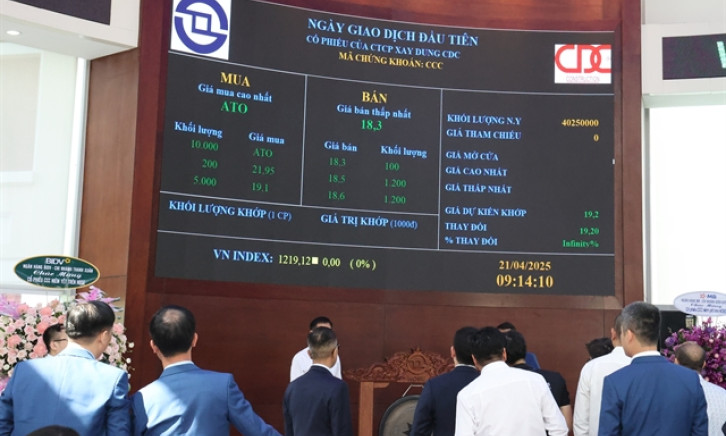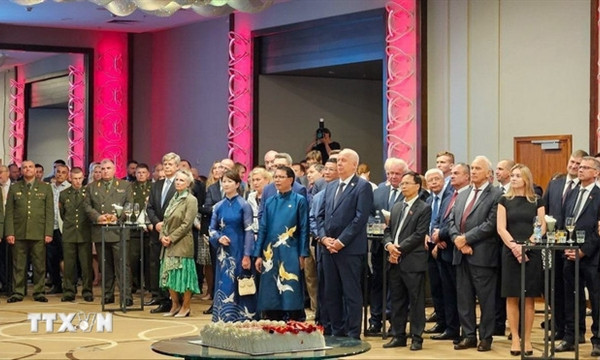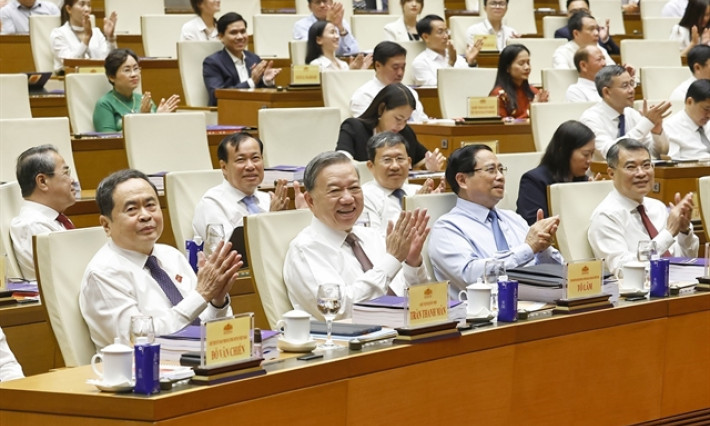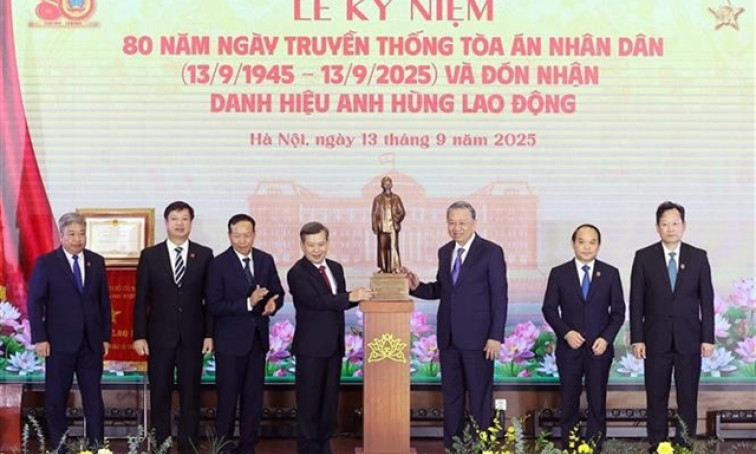Disadvantaged groups in Việt Nam to benefit from tele-health services
The project has been funded by KOFIH with more than US$2.7 million and targets ten disadvantaged and remote provinces: Hà Giang, Bắc Kạn, Lạng Sơn, Lào Cai, Lai Châu, Yên Bái, Tây Ninh, Hậu Giang, Bến Tre and Cà Mau.
The project 'Telehealth to Improve Access to Healthcare Services for Disadvantaged Groups in Việt Nam' was officially co-launched on Thursday in Hà Nội by the Việt Nam Administration for Medical Services, the Korean Foundation for International Healthcare (KOFIH) and UNDP.
Speaking at the ceremony, Dr Hà Anh Đức, General Director of the Việt Nam Administration for Medical Services, said that during the social distancing period caused by the COVID-19 pandemic, as early as 2020, the Vietnamese Ministry of Health had implemented the 'Tele-Medical Examination and Treatment' project and launched over 1,000 connection points.
"This initiative saved thousands of critically ill COVID-19 patients. To date, the project has been actively deployed, providing remote consultation and treatment for tens of thousands of patients nationwide," Đức said.
To enhance grassroots healthcare capacity and improve access to high-quality medical services for people in remote, mountainous areas, the UNDP has partnered with the Ministry of Health since 2020. Both agencies have worked develop and implement a remote consultation and treatment programme at local levels using the 'Doctor for Everyone' software in eight provinces -- Hà Giang, Bắc Kạn, Lạng Sơn, Thừa Thiên Huế, Quảng Ngãi, Bình Định, Đắk Lắk and Cà Mau -- achieving positive outcomes, according to Đức.
"Building on the positive outcomes of the aforementioned collaboration, the Ministry of Health has partnered with the KOFIH and, through UNDP, mobilised resources to implement the project 'Telehealth to Improve Access to Healthcare Services for Disadvantaged Groups in Việt Nam'," he said.
The project has been funded by KOFIH with more than US$2.7 million and targets ten disadvantaged and remote provinces across the country -- Hà Giang, Bắc Kạn, Lạng Sơn, Lào Cai, Lai Châu, Yên Bái, Tây Ninh, Hậu Giang, Bến Tre, and Cà Mau.
A main goal of the project is to improve the health of disadvantaged populations constrained by supply issues. This can be achieved through a digital transformation in health and enhancing access to healthcare to help improve local health services.
The project will modernise software and digital solutions, offer servers and IT equipment, train personnel, and reinforce the legal foundation for telehealth.
It will include three main activities: creating and disseminating technical documents and guidance for telehealth; improving the capacity of the healthcare system to provide telehealth services through software upgrades and data integration; and providing and promoting telehealth services at local health facilities and communities, including for disadvantaged groups and patients with diseases like high blood pressure and tuberculosis.
The 'Doctor for Everyone' software can help with monitoring, making appointments, tele-consultancy and prescribing drugs, as well as providing online trainings and meetings.
It's available as a smartphone app, enabling a connection between local health station staff and residents to provide medical information, schedule appointments, and conduct remote medical consultations. Meanwhile, the internet browser-based application facilitates a connection between local health stations and district health centres or higher-level hospitals for diagnostic and treatment support.
Đức said: “The project focuses on ten disadvantaged and remote provinces... because these provinces still face transportation challenges, limiting the general accessibility to healthcare, particularly at the grassroots level.”
“Therefore, the implementation of remote medical consultations through the application of information technology will help eliminate barriers to healthcare access for people in remote and isolated areas,” the health official added.
“This project focuses on grassroots healthcare, specifically at the commune level. Communal health stations will be equipped with infrastructure, such as computers, and software is already in place.
“In the future, commune healthcare staff will be trained and provided with professional support in primary healthcare. This is just the initial step; based on this foundation, the Ministry of Health will develop subsequent phases,” he added.
As a beneficiary of the project, Dr Tạc Văn Nam, director of the Bắc Kạn Department of Health, stated: "The remote healthcare application, aimed at enhancing access to medical services for vulnerable groups in Việt Nam, can be likened to bringing firewood to warm the people of Bắc Kạn during the cold winter."
“Since Bắc Kạn is a mountainous northern province where the population is primarily ethnic minorities, the terrain is rugged and steep. Residents frequently face risks of flash floods, landslides, and temporary geographic isolation caused by natural disasters.”
“In some areas, people have to traverse challenging routes to reach healthcare centres. Therefore, recognising the benefits of a remote medical examination and treatment programme, we have always aspired to implement remote medical services to help improve local residents' access to quality healthcare services,” Nam said.






